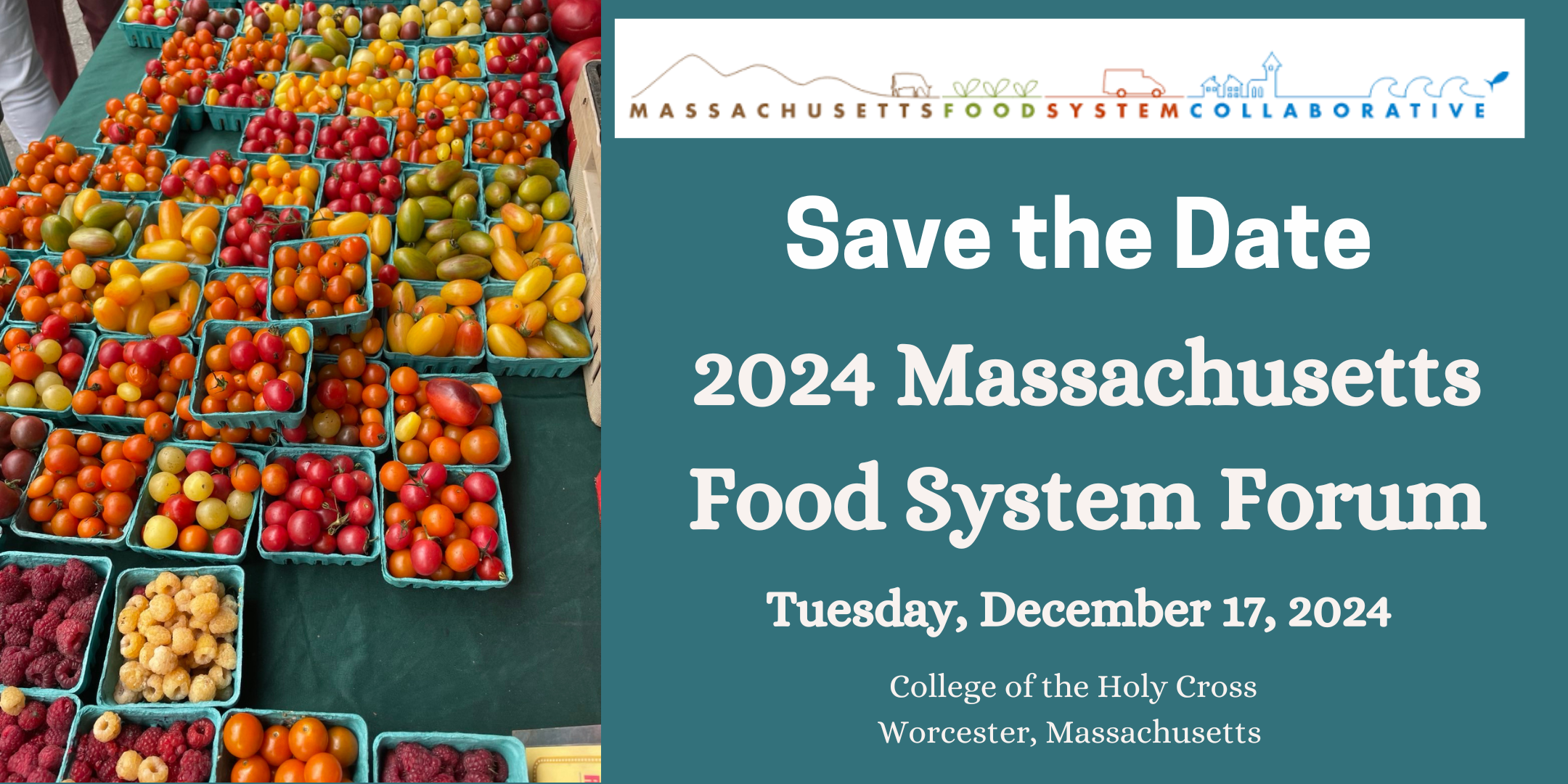
The 2024 Massachusetts Food System Forum will be held in Worcester at Holy Cross on December 17, 2024.
See the full agenda and breakout session information here
Event Address: Hogan Campus Center, College of the Holy Cross, 1 College St, Worcester, MA
As in past years, we expect more than 250 partners, people with lived experiences, and leaders from the Massachusetts food system to participate in this dynamic one-day event. At the Forum, partners across the local food system learn, share, and network. The day will include breakout sessions that will consider intersections between the food system and public health, regional planning, climate change, and education as well as sessions on food waste, community engagement, and agriculture. Attendees will also enjoy locally-sourced meals and ample time to network.
As of November 15, the Forum is sold out.
Interested in sponsoring the event? Please email Kristina at kristina@mafoodsystem.org